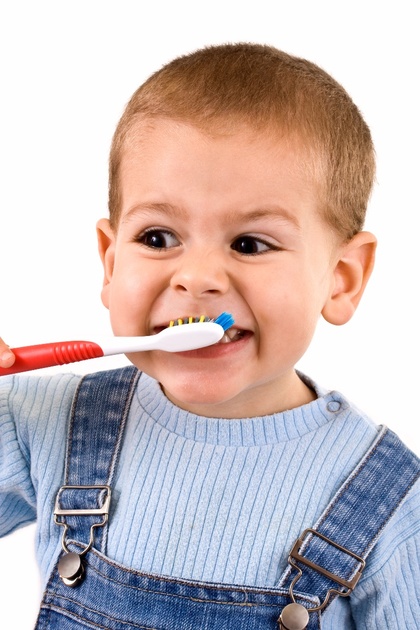
Dear Therapist:
Hi. The concern I am writing about is my almost 15-year-old son. He is Boruch Hashem a masmid. However, his personal hygiene is lacking. I do not recall ever having had an issue with him regarding this matter when he was a child. He showered, brushed his teeth and followed all the other norms regarding personal hygiene. I actually did try speaking to him about it a few times but he brushes me off. I have stopped telling him directly and instead, I will just mention "I am washing shirts today and I don't see your shirt from last night in the hamper." He refuses to wear (unscented) deodorant, and not for frumkeit reasons. He does polish his shoes before Shabbos and will make sure his hat and jacket are clean. Maybe it is laziness. Can you assist me in addressing this matter? Thank you
Response:
You mention that your son’s personal hygiene is “lacking,” but are a bit unclear on the specifics. I assume that he no longer showers or brushes his teeth on a daily basis. When you say that he doesn’t wear unscented deodorant, I assume that this means that he doesn’t wear deodorant at all. Does he ever shower? How often? How many times will he wear the same shirt before laundering?
You didn’t speak about your son’s emotional health. If he has other depressive symptoms (like changes to his appetite or sleep patterns, decreased energy or fatigue, or low self-esteem), he should be evaluated by a therapist. Since you mentioned no depressive symptoms other than yours son’s lack of hygiene, for the remainder of my response I will assume that he is not depressed and that he is otherwise well-adjusted.
If there are presently no direct consequences to your son’s lack of hygiene, he may not see any reason to change his behavior. Although you can help him to recognize specific consequences (like future cavities, gum disease, and body odor), this issue will likely correct itself over time. Your job would be to help him identify any future consequences so that he is prepared to change his behavior as necessary.
On the other hand, if your son wears shirts that are obviously dirty, or if he clearly smells, it’s highly unlikely that there are no social consequences. This is something that should be addressed for multiple reasons. In my experience, chronic laziness doesn’t usually exist as a simple standalone issue; it is generally rooted in a more specific problem. Your son may not be aware of the social connotations of his actions, and might not recognize the potential consequences. This may be his way of rebelling (perhaps feeling that being openly oppositional is not an option). He might feel that certain actions do not conform to his specific social setting.
You state that your son’s refusal to wear deodorant is not “for frumkeit reasons.” Although his stated reason for not wearing deodorant may not be halachically based, this doesn’t necessarily mean that his idea of frumkeit is not in some way affecting his behavior. Frumkeit, yeshivish, and other terms have come to mean many things. They can relate to religion, morality, family, community, social caste, sense of self, spirituality, and intellect, among others. Often, these aspects become blurred. As an example, if your son feels that he won’t fit into a particular group if he is too fastidious about his appearance, he may—consciously or unconsciously—limit his adherence to certain matters of hygiene. On a conscious level, this can relate to actually being accepted; on an unconscious level, he might be attempting to develop a sense of self based on this (i.e., his concept of “yeshivish”).
I think that the first step is to have a candid discussion with your son with the intent of exploring the reasons for his lack of interest in matters of hygiene. You know your son and his likely reaction to such a discussion. Therefore, you should identify the best way to go about broaching the subject. That being said, a non-confrontational approach with the reassurance that you simply want to understand his thoughts on the subject often works best. This conversation would focus solely on his point of view. You would withhold any judgement or suggestions until you’ve had time to consider his perspective and the reasons for his actions.
Your approach to this issue will likely vary based on the reason for your son’s behavior. For example, if you feel that he is trying to rebel in some way against authority, or to establish his own sense of identity, your approach would be different than if it became clear that he doesn’t understand social norms or the consequences of not following them.
-Yehuda Lieberman, LCSW
psychotherapist in private practice
Brooklyn, NY
author of Self-Esteem: A Primer
www.ylcsw.com / 718-258-5317
Disclaimer
The Contents Of This Blog, Including Text, Graphics, Images, And Other Material Are For Informational Purposes Only. Nothing Contained In This Blog Is, Or Should Be Considered Or Used As, A Substitute For Professional Medical Or Mental Health Advice, Diagnosis, Or Treatment. Never Disregard Medical Advice From Your Doctor Or Other Qualified Health Care Provider Or Delay Seeking It Because Of Something You Have Read On The Internet, Including On This Blog. We Urge You To Seek The Advice Of Your Physician Or Other Qualified Health Professional With Any Questions You May Have Regarding A Medical Or Mental Health Condition. In Case Of Emergency, Please Call Your Doctor Or 911 Immediately. The Information Contained On Or Provided Through This Blog Is Provided On An "As Is" Basis, Without Any Warranty, Express Or Implied. Any Access To This Blog Is Voluntary And At Your Own Risk.
 Previous
Previous

